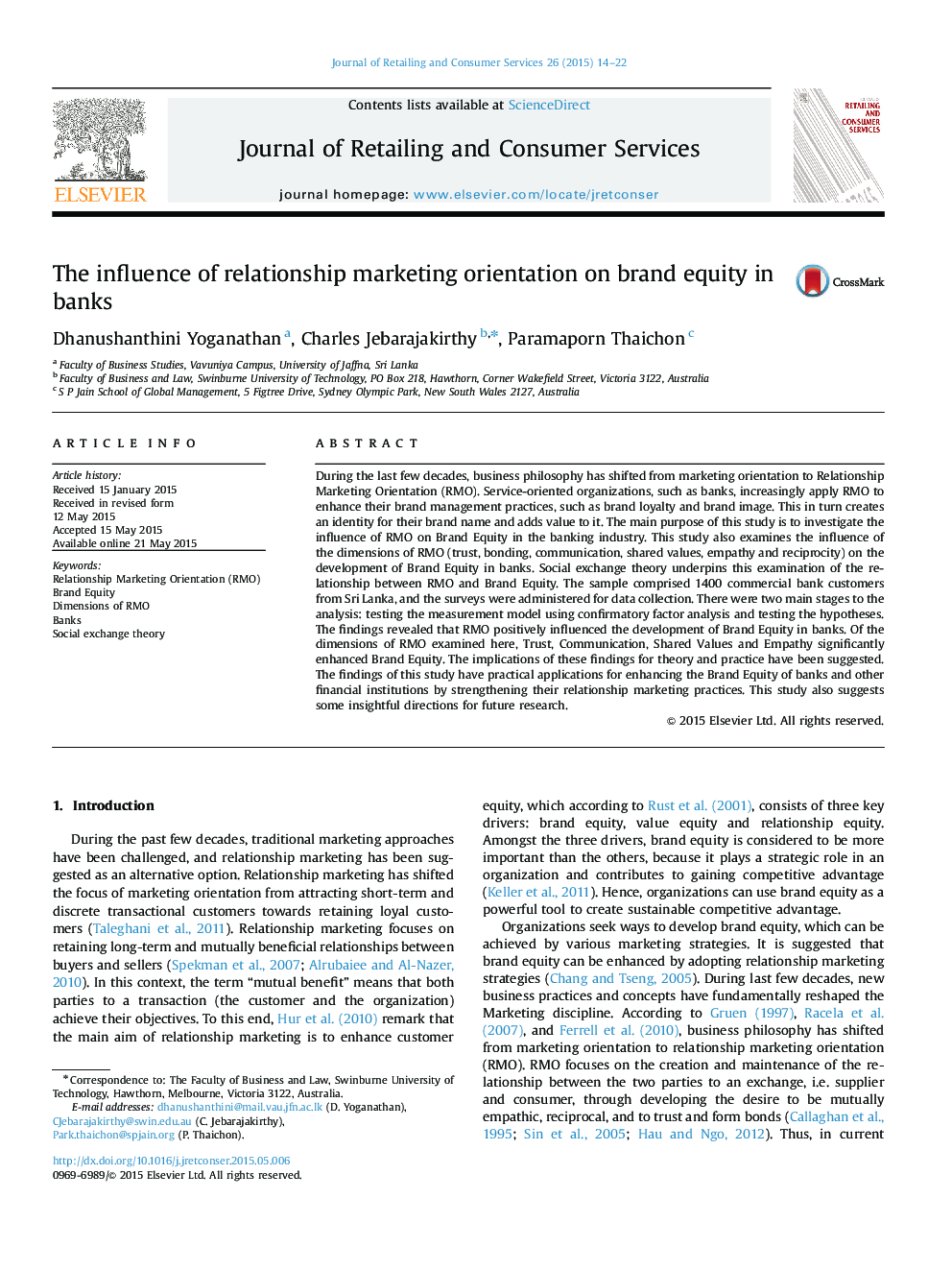| Article ID | Journal | Published Year | Pages | File Type |
|---|---|---|---|---|
| 1028848 | Journal of Retailing and Consumer Services | 2015 | 9 Pages |
•This study investigates the influence of Relationship Marketing Orientation (RMO) on Brand Equity in banking industry.•This study also examines the influence of the dimensions of RMO (trust, bonding, communication, shared values, empathy and reciprocity) on Brand Equity in banks.•The findings showed that RMO positively influenced the development of Brand Equity in banks.•Of the dimensions of RMO, Trust, Communication, Shared Values and Empathy enhanced Brand Equity.
During the last few decades, business philosophy has shifted from marketing orientation to Relationship Marketing Orientation (RMO). Service-oriented organizations, such as banks, increasingly apply RMO to enhance their brand management practices, such as brand loyalty and brand image. This in turn creates an identity for their brand name and adds value to it. The main purpose of this study is to investigate the influence of RMO on Brand Equity in the banking industry. This study also examines the influence of the dimensions of RMO (trust, bonding, communication, shared values, empathy and reciprocity) on the development of Brand Equity in banks. Social exchange theory underpins this examination of the relationship between RMO and Brand Equity. The sample comprised 1400 commercial bank customers from Sri Lanka, and the surveys were administered for data collection. There were two main stages to the analysis: testing the measurement model using confirmatory factor analysis and testing the hypotheses. The findings revealed that RMO positively influenced the development of Brand Equity in banks. Of the dimensions of RMO examined here, Trust, Communication, Shared Values and Empathy significantly enhanced Brand Equity. The implications of these findings for theory and practice have been suggested. The findings of this study have practical applications for enhancing the Brand Equity of banks and other financial institutions by strengthening their relationship marketing practices. This study also suggests some insightful directions for future research.
